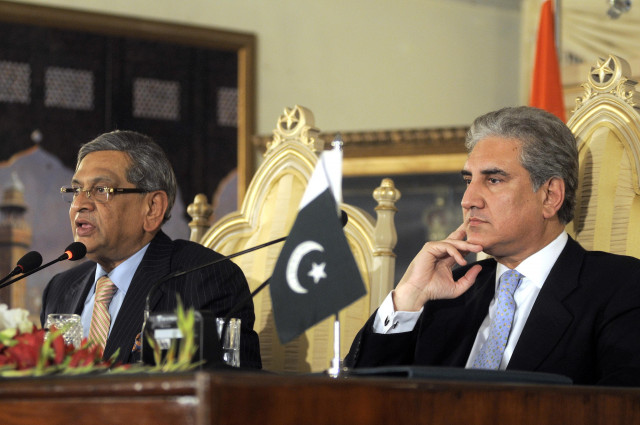Pakistan-India talks
Mumbai attacks fundamentally changed nature of the relationship between Pakistan, India.

Pakistan-India talks
The Mumbai attacks fundamentally changed the nature of the relationship between the two countries. Historically, Pakistan has always insisted that the Kashmir issue should be front and centre of any negotiations while India has wanted a broader agenda that encompasses trade and economic cooperation. That has now been reversed. It is Pakistan that doesn’t want to limit the scope of such talks while India refuses to discuss anything but terrorism. Thus, to repair relations with India, Pakistan first needs to take action on the domestic front. The government and military have been hesitant to take on the Lashkar-e-Taiba (LeT), the militant group believed to be behind the Mumbai attacks. The court case has faltered and it continues to operate relatively unhindered. Until there is a decisive shift in policy, India-Pakistan talks are destined to fail.
Even doomed negotiations, however, are preferable to a complete break in negotiations. It is heartening that both governments, despite their intractable differences, are willing to give diplomacy a chance. The next step, which would ideally take place during the Bhutan talks, would be a softening of their rigid stances. India needs to realise that increased economic cooperation would inevitably lead to greater political relations. If the two countries are bound together through trade, it will be in their interests not to upset the apple cart. Pakistan, for its part, needs to pledge to fight the LeT with the same vigour and intensity with which it took on militancy in the tribal areas. Fighting home-grown terrorism is vital not just for our relations with India but for our own survival.
Published in The Express Tribune, January 10th, 2011.















COMMENTS
Comments are moderated and generally will be posted if they are on-topic and not abusive.
For more information, please see our Comments FAQ